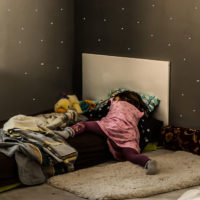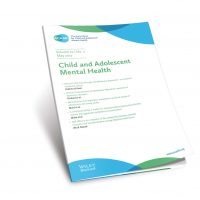Mood disorders
-

Most Cited JCPP Articles #46 of 60
Most cited JCPP papers #46 of 60: Longitudinal pathways linking child maltreatment, emotion regulation, peer relations, and psychopathology
Read more -

Most Cited JCPP Articles #53 of 60
Most cited JCPP papers #53 of 60: Towards a family process model of maternal and paternal depressive symptoms: exploring multiple relations with child and family functioning
Read more -

Sleep Edition
This edition of The Bridge concentrates on sleep, a poignant reminder that I am editing this on a 6am train to London having shortened my own sleep cycle and feeling rather sleep deprived on this dark winter morning.
Read more -

Sleep problems in preschoolers predict depression and anxiety severity
The bidirectional links between sleep problems and psychopathology in children have been well-reviewed,1 but few investigations have been performed in young samples and those with early-onset psychopathology.
Read more -

Dr Agyris Stringaris & JCPP
See how JCPP influenced our Editor, Dr Agyris Stringaris, in his studies.
Read more -

Professor Joan Rosenbaum Asarnow & JCPP
Professor Joan Rosenbaum Asarnow discusses her relationship with JCPP.
Read more -

No more to this ‘pitiful’ investment – A World Mental Health call from our chair
World Mental Health Day reminds us of the very large number of people who live with distress and anguish for long periods of their lives.
Read more -

CAMH Editorial: Volume 23, Issue 3, September 2018
“Antidepressants and the depressed adolescent” by Ian M. Goodyer
Read more -

Depression – Foreword from the Editor
Welcome to this edition of The Bridge which focuses on depression.
Read more -

Moving towards prevention as the intervention of choice for depression in children and adolescents
Are there sub-groups of children characterized by similarities in the development of depressive symptoms? And, if there are, could this be a basis for early intervention and prevention of depressive disorder?
Read more